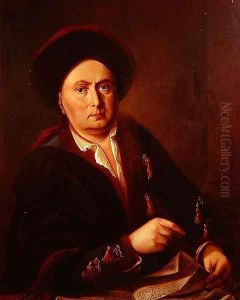Leopold Radoux Paintings
Leopold Radoux was a Belgian composer, musician, and teacher born on July 9, 1840, in Liège, Belgium, and passed away on February 18, 1909. Though perhaps not as widely recognized as some of his contemporaries, Radoux played a significant role in the development of music education and the musical landscape in Belgium during the 19th century. His contributions to music, especially in the realm of education and composition, have left a lasting legacy that continues to be studied and appreciated by music scholars and enthusiasts alike.
Radoux's musical journey began at a young age, heavily influenced by the rich musical tradition of his homeland. He was admitted to the Royal Conservatory of Liège, where he honed his skills in composition and orchestration. His talents were recognized early on, and he garnered several awards and accolades during his years of study, which helped establish his reputation as a promising young composer and musician.
After completing his education, Radoux dedicated himself to a career that spanned teaching, composing, and conducting. He joined the faculty of the Royal Conservatory of Liège, where he influenced countless students with his innovative teaching methods and deep passion for music. Radoux's approach to music education was forward-thinking for his time, emphasizing the importance of both technical skill and emotional expression.
As a composer, Radoux was known for his works that often reflected the romanticism of his era, while also incorporating elements of Belgian folk music. His compositions include a variety of genres, from operas and symphonies to chamber music and choral works, showcasing his versatility and creativity as a composer.
Radoux also served as a conductor, leading various orchestras and ensembles throughout Belgium. His leadership and interpretative skills were highly regarded, and he was instrumental in bringing a wide repertoire of music, both classical and contemporary, to Belgian audiences.
Despite his death in 1909, Radoux's impact on the musical world, particularly in Belgium, has endured. His contributions to music education have paved the way for future generations of musicians, and his compositions continue to be performed and celebrated. Through his work, Leopold Radoux has secured his place in the annals of music history as a respected composer, educator, and champion of the arts.
